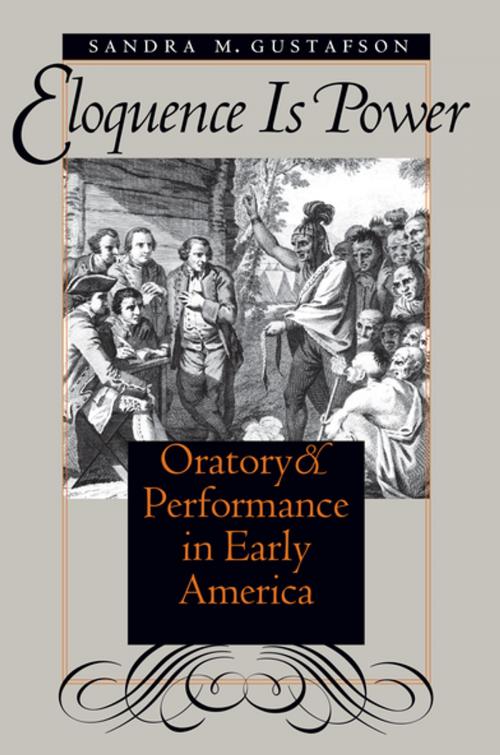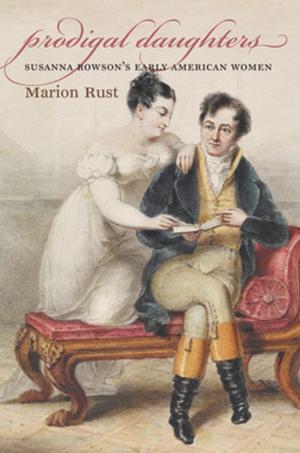Eloquence Is Power
Oratory and Performance in Early America
Nonfiction, Reference & Language, Language Arts, Public Speaking, History, Americas, United States, Revolutionary Period (1775-1800)| Author: | Sandra M. Gustafson | ISBN: | 9780807839140 |
| Publisher: | Omohundro Institute and University of North Carolina Press | Publication: | December 1, 2012 |
| Imprint: | Omohundro Institute and University of North Carolina Press | Language: | English |
| Author: | Sandra M. Gustafson |
| ISBN: | 9780807839140 |
| Publisher: | Omohundro Institute and University of North Carolina Press |
| Publication: | December 1, 2012 |
| Imprint: | Omohundro Institute and University of North Carolina Press |
| Language: | English |
Oratory emerged as the first major form of verbal art in early America because, as John Quincy Adams observed in 1805, "eloquence was POWER." In this book, Sandra Gustafson examines the multiple traditions of sacred, diplomatic, and political speech that flourished in British America and the early republic from colonization through 1800. She demonstrates that, in the American crucible of cultures, contact and conflict among Europeans, native Americans, and Africans gave particular significance and complexity to the uses of the spoken word.
Gustafson develops what she calls the performance semiotic of speech and text as a tool for comprehending the rich traditions of early American oratory. Embodied in the delivery of speeches, she argues, were complex projections of power and authenticity that were rooted in or challenged text-based claims of authority. Examining oratorical performances as varied as treaty negotiations between native and British Americans, the eloquence of evangelical women during the Great Awakening, and the founding fathers' debates over the Constitution, Gustafson explores how orators employed the shifting symbolism of speech and text to imbue their voices with power.
Oratory emerged as the first major form of verbal art in early America because, as John Quincy Adams observed in 1805, "eloquence was POWER." In this book, Sandra Gustafson examines the multiple traditions of sacred, diplomatic, and political speech that flourished in British America and the early republic from colonization through 1800. She demonstrates that, in the American crucible of cultures, contact and conflict among Europeans, native Americans, and Africans gave particular significance and complexity to the uses of the spoken word.
Gustafson develops what she calls the performance semiotic of speech and text as a tool for comprehending the rich traditions of early American oratory. Embodied in the delivery of speeches, she argues, were complex projections of power and authenticity that were rooted in or challenged text-based claims of authority. Examining oratorical performances as varied as treaty negotiations between native and British Americans, the eloquence of evangelical women during the Great Awakening, and the founding fathers' debates over the Constitution, Gustafson explores how orators employed the shifting symbolism of speech and text to imbue their voices with power.















